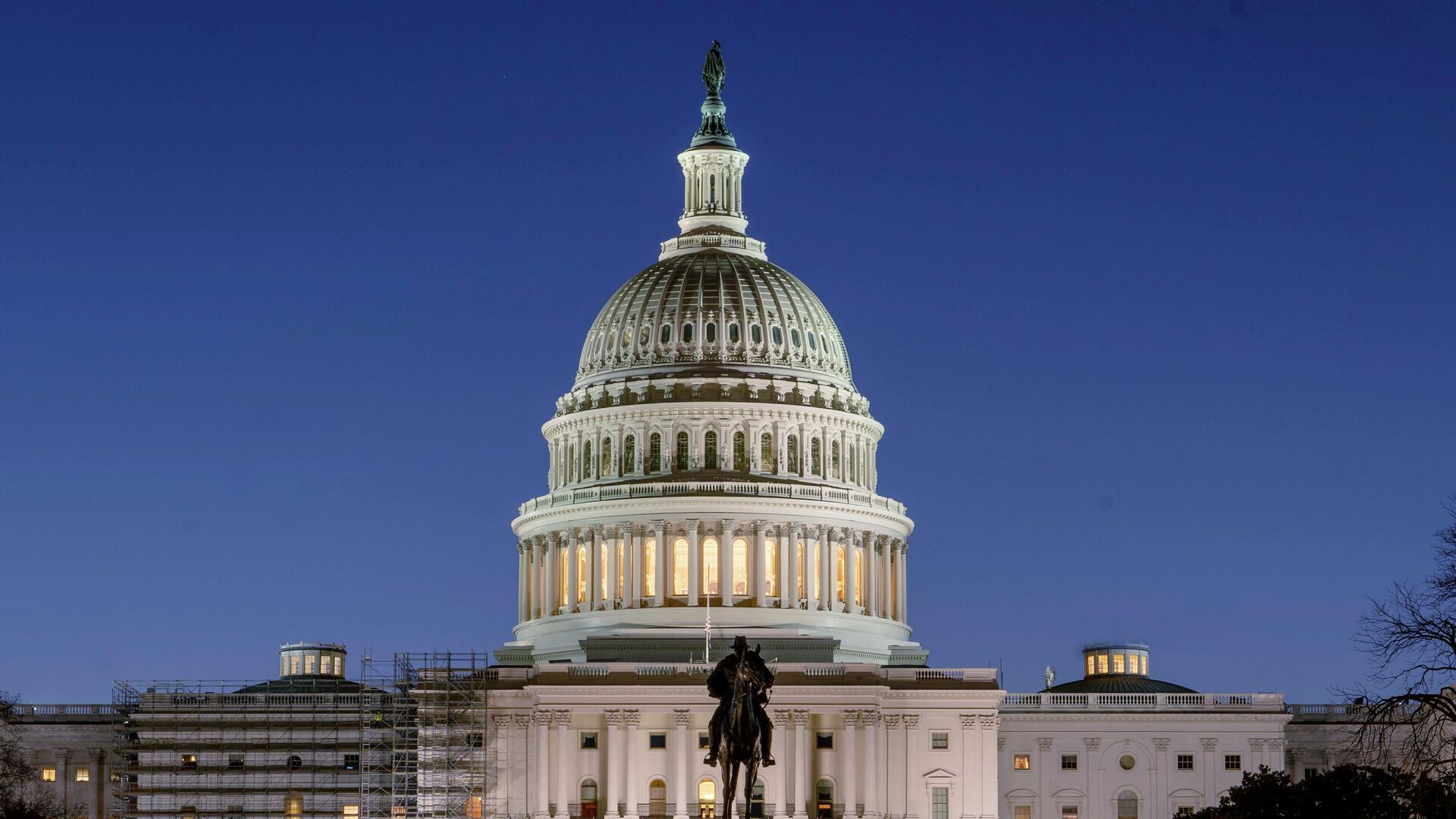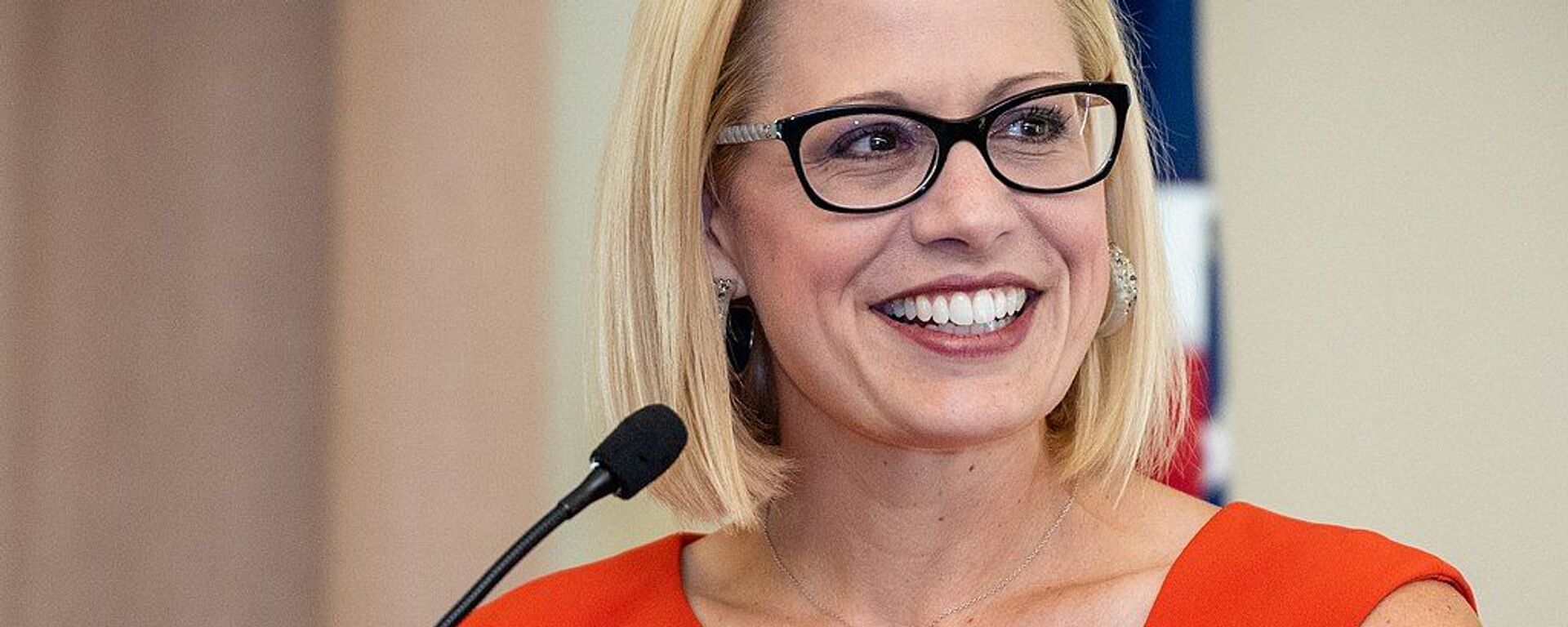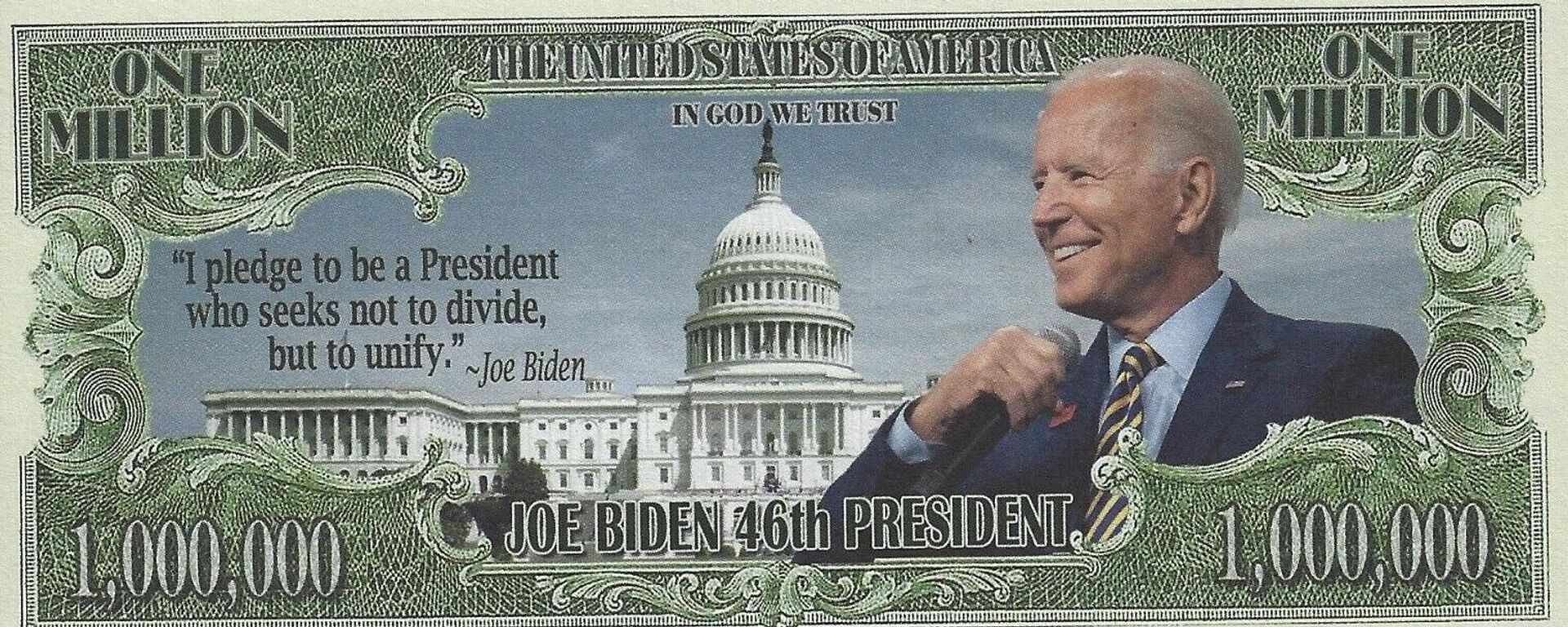Senate Passes Inflation Reduction Act Along Party Lines
22:10 GMT 07.08.2022 (Updated: 20:37 GMT 19.10.2022)

© AP Photo / Gemunu Amarasinghe
Subscribe
The Inflation Reduction Act was introduced to the Senate late last week. It has been called a lighter version of the Build Back Better plan that was the keystone to President Joe Biden’s agenda.
The Senate passed the Inflation Reduction Act on Sunday, giving the Biden administration a major legislative win before the midterm elections in November. The bill passed with a vote of 51-50, with all Republicans voting against the bill and all Democrats, plus Independent Senator Bernie Sanders voting for it. Vice President Kamala Harris, acting as President of the Senate, provided the tie-breaking vote.
The bill addresses several issues that were part of the Biden administration's agenda but falls short of the Build Back Better plan that stalled in Congress last year.
West Virginia Senator Joe Manchin and Senate Majority Leader Chuck Schumer of New York announced that they had reached a deal on the bill early last week. Negotiations continued with Arizona Senator Krysten Sinema until Thursday, requiring more compromise to pass the bill.
“Today, Senate Democrats sided with American families over special interests, voting to lower the cost of prescription drugs, health insurance, and everyday energy costs and reduce the deficit, while making the wealthiest corporations finally pay their fair share,” President Biden said in a statement. “I ran for President promising to make government work for working families again, and that is what this bill does — period.”
Health Care
The bill will limit out-of-pocket prescription costs to $2,000 for seniors on Medicare, starting in 2025. It will also extend subsidies to the Affordable Care Act for another three years. The bill will allow Medicare to negotiate prescription drug prices, albeit in an extremely limited way. Negotiations will not begin until 2026 and will only cover ten prescription drugs. In 2029, the number of drugs that can have their price negotiated will increase to 20.
One provision of the bill, which would have limited insulin costs to $35, had to be removed after the Senate Parliamentarian ruled that it could not be included using budget reconciliation, a Senatorial strategy that enables the Democrats to overrule a potential filibuster without obtaining 60 votes.
The insulin cap can be applied to Medicare recipients however, the Parliamentarian ruled.
Climate Change
The Inflation Reduction Act also attempts to tackle climate change. The bill will invest more than $300 billion into energy and climate reform, the largest by the federal government in history.
That includes $60 billion for building renewable energy infrastructure and tax credits for individuals buying electric cars or making their homes more energy efficient. The bill should lower emissions by 40% compared to 2005 levels by the end of the decade, short of Biden’s original goal of 50%.
However, the bill also mandates the leasing of land in the Gulf and Alaska for oil and gas drilling, something that environmental groups have decried.
“Equally alarming are provisions that would require massive oil and gas leasing in the Gulf of Mexico and Alaska, reinstating an illegal 2021 Gulf lease sale and mandating that millions more acres of public lands be offered for leasing before any new solar or wind energy projects could be built on public lands or waters,” Environmental group Earthworks said in a statement on the bill. “Drilling on public lands accounts for about one quarter of all greenhouse gas emissions. Avoiding climate disaster requires us to stop all new oil and gas drilling on U.S. lands and waters now and begin phasing existing extraction out entirely.”
Earthworks also expressed concerns about mining for electric vehicle batteries, noting that the law pertaining to mining was written in 1872 and “provides no protections for communities or the environment.”
Still, other groups have expressed satisfaction with the climate change portion of the bill and hope that further bills or private investments could make up the difference to reach Biden’s original 50% emission goal.
Tax Reform
To pay for the expenditures in the bill, it also adds a 15% minimum tax for corporations making over $1 billion in revenue a year. That will bring in an estimated $300 billion in taxes.
The Act was also meant to close or narrow the carried interest tax loophole, but Democrats had to drop it to get Arizona Senator Krysten Sinema to support the bill. In its place is a tax on stock buybacks that is expected to raise up to five times the amount of money the carried interest tax loophole would have gained. However, that does not go into effect until next year, causing speculation that we could see a rush of stock buybacks before 2022 ends.
“[The bill] pays for all this by establishing a minimum corporate tax so that our richest corporations start to pay their fair share,” Biden said in his statement. “It does not raise taxes on those making under $400,000 a year – not one cent.”
The Bill will now be sent to The House of Representatives, for a vote expected Friday. The Democrats have a larger majority in the House, so the bill should pass without issue. It will then be sent to The White House for President Biden to sign into law.
“To Americans who’ve lost faith that Congress can do big things, this bill is for you," Schumer said. "This bill is going to change America for decades."


